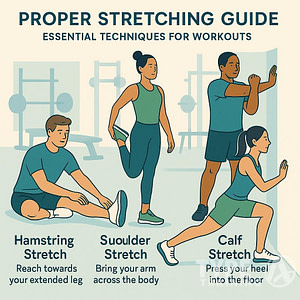Most people know that caffeine is a popular choice for boosting energy. It helps you feel more awake during the day. It might be your go-to drink for a sluggish morning or a long night of studying. But caffeine doesn’t just affect your alertness; it can also impact your sleep quality.
Caffeine works by blocking adenosine, a chemical in your brain that promotes sleep. This can lead to trouble falling asleep, staying asleep, or getting restful sleep. If you’ve ever felt jittery or anxious after that third cup of coffee, you might want to consider the timing and amount of caffeine you consume during the day.
To enjoy the benefits of caffeine without sacrificing sleep, it’s important to understand how it affects you personally. By adjusting when and how much caffeine you consume, you can enjoy more alertness while maintaining better sleep quality.
Popular posts:
Key Takeaways
- Caffeine boosts alertness but impacts sleep quality.
- Blocking adenosine, caffeine influences sleep patterns.
- Adjust caffeine timing to improve sleep.
The Science of Sleep and Caffeine
Caffeine plays a significant role in how your brain manages the sleep-wake cycle. It affects adenosine, influences the circadian rhythm, and disrupts natural sleep patterns.
Understanding Caffeine’s Mechanisms
Caffeine works mainly by blocking adenosine receptors in your brain. Adenosine is a neurotransmitter that gradually builds up during your day and makes you feel sleepy as it binds to its receptors.
When you consume caffeine, it prevents adenosine from binding to the receptors, temporarily keeping you alert and awake. By doing so, caffeine tricks your brain into feeling less tired without altering the amount of adenosine produced.
This boost may affect timing and quality of rest.
Caffeine’s Impact on Sleep Cycles
High caffeine intake can disturb your sleep cycles. When you consume caffeine later in the day, it can delay the release of melatonin, a hormone that regulates sleep.
This delay shifts your sleep-wake cycle, making it harder for you to fall asleep. Stages of sleep become fragmented as caffeine can trigger brief awakenings throughout the night, reducing overall restfulness.
Such fragments impair your body’s ability to reach deep, restorative sleep.
Adenosine and Wakefulness
Adenosine plays a crucial part in the balance between waking and sleeping. Over the course of the day, adenosine levels rise, increasing your body’s need for sleep.
By the end of the day, these heightened levels signal the brain to feel tired, encouraging rest. When caffeine blocks adenosine, it impedes this natural sleep signal, leading to prolonged waking periods.
Understanding this relationship between caffeine and adenosine can help you manage your sleep-wake schedule more effectively.
Health and Lifestyle Factors
Understanding how caffeine interacts with your body involves different factors, including your tolerance and genetic makeup. These factors play a key role in how caffeine affects your sleep and overall health.
Caffeine Tolerance and Sensitivity
Your caffeine tolerance is an important consideration for how it affects your sleep. Regular caffeine use can lead to increased tolerance, meaning you’ll need more to achieve the same effect.
Sensitivity to caffeine can vary widely from person to person. Some people may feel alert after just one cup, while others may require more. How your body processes caffeine will also depend on factors like age, weight, and overall health.
Genetic Influences on Caffeine Interaction
Genetic differences can impact how your body interacts with caffeine. Certain genes affect how quickly you metabolize caffeine. Genes such as CYP1A2 can determine if you’re a fast or slow metabolizer.
If you’re a slow metabolizer, the effects of caffeine can last longer, potentially impacting sleep quality. Understanding your genetic makeup can be helpful in managing your caffeine intake and sleep patterns.
The Role of Sleep Hygiene
Sleep hygiene is crucial when considering caffeine’s impact. Good sleep hygiene includes practices like keeping a consistent sleep schedule and creating a restful environment. Caffeine intake, especially in the late afternoon or evening, can disrupt these habits.
To improve sleep quality, limit caffeine at least 8 hours before bedtime. In addition, focus on stress management and regular exercise as part of your sleep routine. Improving these habits can help mitigate caffeine’s negative effects on sleep.
Effects of Caffeine on Sleep Quality
Caffeine is known to impact sleep in various ways, affecting both how long and how well you sleep. From causing disorders like insomnia to reducing the efficiency of your sleep, caffeine can have significant effects.
Caffeine Consumption and Sleep Disorders
Caffeine is a common stimulant found in coffee, tea, and energy drinks. It works by blocking adenosine, a chemical that promotes sleep. High caffeine intake can lead to sleep disorders such as insomnia.
If you consume caffeine in large amounts throughout the day or close to bedtime, you’re more likely to experience sleep difficulties. People who regularly consume caffeine may find it hard to fall asleep or stay asleep. For some, even small amounts can have significant effects. Sensitivity to caffeine varies greatly, making it important to monitor your intake if you experience sleep issues. Reducing caffeine consumption, especially in the evening, can help improve sleep quality and reduce the risk of developing sleep disorders.
Impact on Sleep Duration and Efficiency
The duration and efficiency of your sleep are also affected by caffeine. Drinking caffeine late in the day can lead to shorter sleep durations as it takes hours for your body to eliminate it from your system. This can result in reduced sleep time and disrupted sleep cycles.
Sleep efficiency, which measures the time spent asleep compared to the time spent in bed, may decrease with caffeine consumption. Superficial sleep or difficulty in falling asleep affects overall restfulness. Sleep pressure, the body’s need for sleep, is lessened, causing delays in sleep initiation. Lowering caffeine intake, particularly in the afternoon and evening, is key to improving both sleep duration and efficiency.
Caffeine’s Influence on Daytime Functioning
Caffeine is a popular choice for boosting alertness and reducing daytime sleepiness. It can improve concentration and energy levels, which can be beneficial for those who need to stay focused or active.
Concentration and Cognitive Function
Caffeine is known to enhance concentration and cognitive performance. It works by blocking adenosine, a brain chemical linked to sleepiness, increasing neurotransmitter activity that promotes alertness.
For students or professionals, caffeine can aid in completing tasks that require focus and quick thinking. It may help speed up response times and improve short-term memory. However, its effects can vary—regular consumers might notice a reduced impact due to tolerance.
When managing tasks requiring strong mental performance, caffeine can be a useful tool.
Physical Performance and Energy Levels
Caffeine boosts physical performance and energy through stimulating the central nervous system. This stimulation increases adrenaline levels, which can improve physical endurance and strength.
For athletes, caffeine intake has been linked to increased performance during workouts and competitions. Even for those engaged in daily physical activities, it can increase your energy levels and help reduce feelings of fatigue.
It’s essential to manage consumption—overuse may lead to jitteriness or decreased benefits over time. Depending on how your body responds, caffeine can be a substantial aid in maintaining energy and enhancing physical activity.
Managing Caffeine for Better Sleep
Reducing caffeine intake and adjusting the timing of consumption can help improve sleep quality. If you’re cutting back, be mindful of potential withdrawal symptoms, which might briefly impact your sleep, but often result in better rest over time.
Strategies for Reducing Caffeine Intake
Start by tracking your daily caffeine intake. This includes coffee, tea, energy drinks, and even some medications. Once you know your consumption levels, try cutting back gradually.
Switch to decaf beverages in the afternoon. This will help keep evening caffeine levels low. Opt for herbal teas or water if possible.
Set clear limits on the number of caffeinated drinks you have. Using a log can help you stay aware of your intake.
Timing of Caffeine Consumption
The closer you consume caffeine to bedtime, the more it disrupts your sleep. Aim to stop caffeine consumption at least 6-10 hours before you plan to sleep.
Caffeine’s half-life is about 5-6 hours, meaning it can stay in your system for a while. Consider starting your day with caffeinated drinks and tapering off in the afternoon.
Caffeine can reduce your deep sleep and increase nighttime awakenings. Adjusting your schedule helps reduce these effects.
Caffeine Withdrawal and Sleep Recovery
If you’re cutting back, prepare for some withdrawal symptoms like headaches or irritability. They usually last a few days.
During this time, your sleep might temporarily worsen. However, once your body adjusts, many find they get more restorative sleep.
To ease withdrawal symptoms, decrease caffeine intake slowly rather than going cold turkey.
Stay hydrated and maintain a regular sleep routine to support recovery.
Adjust to these changes slowly and allow your body to find a new balance for better sleep.












